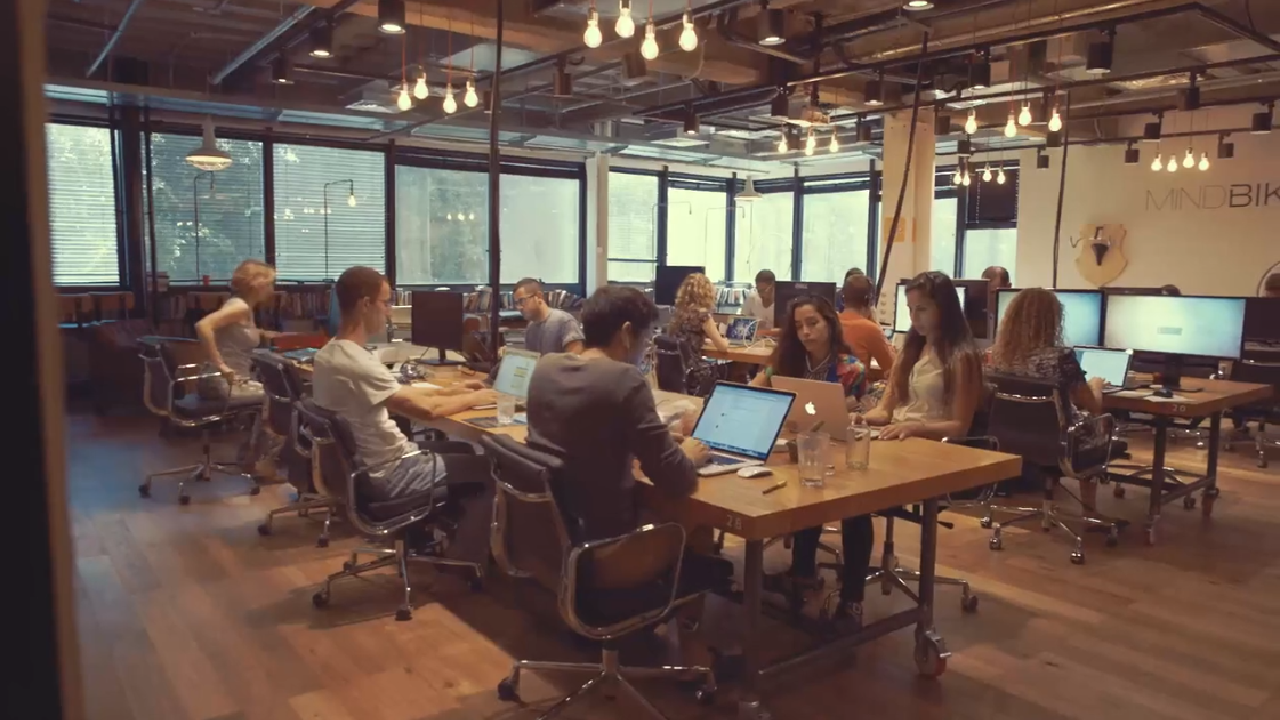How often do you walk in your clients’ shoes?
To really understand what brings a new member to your workspace — or what sends them packing — it pays to understand their perspectives and needs. Often, that’s the difference between a short-term client and one that stays far beyond their initial licence agreement.
Given the growth of flexible workspace in many cities and the subsequent rise in competition, unhappy workspace clients have more opportunity to vote with their feet. So how do you help keep your clients on your side?
It all starts with a simple conversation.
Asking questions and listening to feedback is invaluable for any business. It offers a direct line to understand what’s working and what isn’t, and how to make their experience more valuable. Along the way, you stand to learn important lessons about your workspace, or your team dynamics, or even yourself, that could pave the way for new opportunities you hadn’t even considered. It’s amazing what fresh perspective can do.
With that in mind, Allwork.Space contacted flexible workspace centres in 3 major cities around the world — New York, Tel Aviv and Bristol — to learn what attracted their members to flexible workspace and what they value about their chosen spaces.
New York: Blender
Integrity Square and Billion Dollar Boy
At Blender, an upscale workspace in New York City that launched early 2017, founder Scott Sassoon set out to create a community-focused environment that’s “custom built for high-caliber professionals who value thoughtful design and an elevated work experience.”
Peter Moore, Managing Partner at Integrity Square LLC, was attracted by Blender’s carefully managed environment and subsequently relocated his team to the Madison Avenue workspace.
“We were looking for a high-end entrepreneurial workspace that would be in line with our culture and exuded a level of professionalism, on trend and balanced,” he said.
“We were not interested in being located inside a zoo environment of startups.”
Prior to taking space at Blender, Integrity Square had its own 3,000 sq ft office, but decided to move to a “colo” environment in order to interact with people from other companies. The flexibility suited them and the company is now expanding, thanks in part to the opportunities provided within the workspace environment:
“We use the cafe area for our HALO Academy events, which enables us to meet other companies here who are potential affiliates and partners.”
For Permele Doyle, a Partner at Billion Dollar Boy, also based at Blender, the workspace has played a vital role in fast-tracking their company expansion.
“We were one of the first tenants at Blender,” said Permele. “It has provided us with the perfect environment to expand our team, meet with clients and influencers and develop our creative strategies, as well as put our heads down to effectively run campaigns.”
Billion Dollar Boy, which was founded in the UK in 2014 and expanded to the US in 2015, currently uses a private serviced office at Blender alongside access to open coworking areas. They expect to take a larger office within the next few months as the team expands.
Bristol, UK: BE Offices
Desynit
IT systems consultancy company Desynit is based at CityPoint in Bristol, operated by BE Offices. Desynit moved into Citypoint 14 years ago as a 3-person startup. Today, the team are still in situ and occupy 16 workstations across three serviced office suites.
“We began life as three directors working out of a home office, with a warehouse for storage,” said co-founder Jeremy Yearron. “We run user group events and workshops centred around Salesforce Software, and these have been well attended by people in the building.”
For companies that choose to stay in a serviced office for the long-term, the value factor is often different to those who view it as an interim solution.
“The all-inclusive package was one of the main factors in our decision to move here — and our decision to stay here for more than a decade,” added Jeremy. “Cash flow is the most important factor for any business, and when you can have security and transparency around your rental and facilities costs, it’s a great help when budgeting.”
Tel Aviv: Mindspace
Intezer and Seegnature
Cyber security startup Intezer moved to Mindspace in Tel Aviv in 2015 with a small team of three. Intezer’s malware analysis and detection solution, which replicates the concepts of the biological immune system into cyber security, has since received $10million funding and the company is accelerating. Now with a team of 15, Intezer is a classic example of a high-growth business with evolving needs — and flexible workspace poses an ideal solution.
“When looking for the right office, we were after something that we could commit to for just a few months. At Mindspace, you pay on a monthly basis which has been extremely helpful for us,” said Roy Halevi, co-founder and CTO at Intezer.
“We didn’t have time to worry about the logistics — we needed to focus on building our company.”
Prior to Mindspace, Halevi and his co-founder worked at home or at investors’ offices. It soon became apparent that they needed their own space not just for greater collaboration, but also to attract new employees.
“Mindspace’s location is very important to us as it really helps our recruiting efforts.”
Of course a professional workspace also helps to improve a company’s image, which is essential for startups.
“Mindspace looks and feels really cool and we have great meeting rooms. Meeting with investors and customers always goes well!” Halevi added. “We are also really happy with the Community Managers here. As a small company, they have really helped to improve our stay here — the door is always open for us when I need something or I have a certain problem, and we constantly see improvements.
“We didn’t come here because of the community manager service, but it’s a big reason why we have stayed.”
Likewise Seegnature, a customer engagement and remote collaboration platform also based at Mindspace in Tel Aviv, values the personable appeal of the community and the ability to scale quickly as needed.
“We moved to Mindspace a year after we launched our platform,” said Yair Ravid, co-founder and CEO of Seegnature. “We expanded the team and knew it was a good opportunity to secure offices in a great location inside the city, as well as gain exposure to many different providers.
“Being located close to other providers, in the same space, has helped us lower our costs.”
“We saw Mindspace as a fantastic opportunity to be in a central position and enjoy a vibrant atmosphere with all the different startups and enterprises that are located there. It was also a good decision for attracting great talent.”
For Seegnature, one of the main ways their workspace has helped their business is the community ethos and networking opportunities.
“I think the fact that there are so many events conducted close to our offices, or right inside, helps us gain exposure to a vast array of clients and investors,” added Ravid. “Mindspace helps us expand and secure new clients, and the close proximity to other startups — as well as mature companies — helps extend our pipeline.”



 Dr. Gleb Tsipursky – The Office Whisperer
Dr. Gleb Tsipursky – The Office Whisperer Nirit Cohen – WorkFutures
Nirit Cohen – WorkFutures Angela Howard – Culture Expert
Angela Howard – Culture Expert Drew Jones – Design & Innovation
Drew Jones – Design & Innovation Jonathan Price – CRE & Flex Expert
Jonathan Price – CRE & Flex Expert














